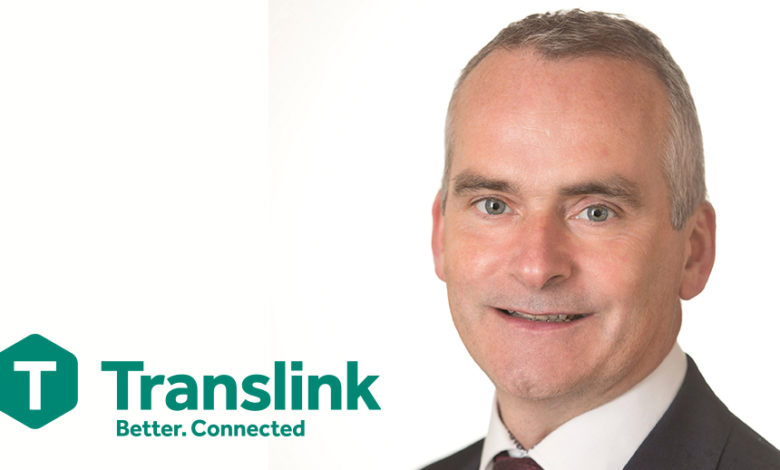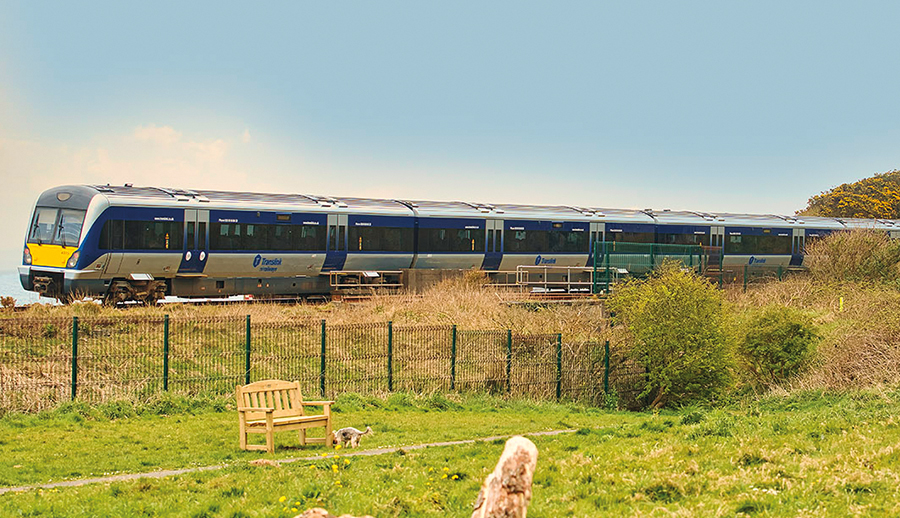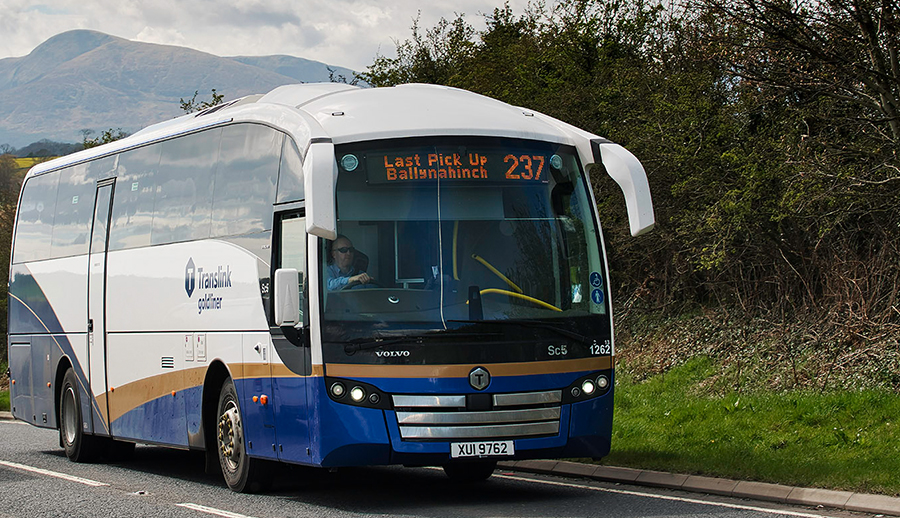Northern Ireland: Better Connected

An effective, efficient, and successful public transport network is vital for the economic, social, and environmental wellbeing of our society. That’s why we are committed to continuing the transformation of public transport in Northern Ireland, with our strategy for the decade ahead focused on the theme of Better. Connected.
Better means we will strive for excellence in everything we do, continually improving the quality and accessibility of our services through innovation and an unwavering focus on our customers. It also means accelerating action to address climate change, helping to ensure a cleaner environment. If more people use public transport and active travel modes, we can reduce congestion and reduce air pollution and greenhouse gases.
Connected is what we want for our people and communities. This means leading the development of an integrated transport network, linking services and transport modes. Connected also allows the enabling of wider policy objectives of the Northern Ireland Executive, connecting people with work, education, health, retail, leisure, and social opportunities.
Climate action
Climate change remains the biggest long-term threat to us all, with air pollution a major risk to personal health. The transport sector has an important role to play in achieving net zero targets locally and globally, helping to deliver better air quality, reduced congestion and improved public health outcomes. This will require a major policy shift by governments to encourage more people to choose public transport and active travel modes.
Effective, sustainable public transport is vital to combatting the climate crisis and driving the change towards a healthier and better quality of life. As our society deals with a cost-of-living crisis, sustainable public transport will also be an important contributor to addressing the challenges and difficulties faced by many.
Translink is committed to helping Northern Ireland deliver on its climate commitments by ensuring that our whole network is net zero by 2040, and climate positive by 2050. We are delighted to have been ranked as platinum status in the Business in the Community Northern Ireland Environmental Benchmarking survey, and we will continue to benchmark Translink with the top-rated organisations in carbon emission reductions. We will also work to assess, plan, design, build, and upgrade our infrastructure to ensure we can operate in a way that anticipates, prepares for, and adapts to changing climate conditions.
Customer focus
The attractiveness of our services at every level is a key factor, and in keeping with our net zero ambitions, we are in the process of delivering 100+ locally built zero-emission buses for use on Metro routes in Belfast and selected routes elsewhere; already, we operate the UK and Ireland’s fourth-largest zero-emission bus fleet, and this investment means that over one third of Metro vehicles in Belfast now operate on zero-emission technology, a figure projected to reach 100 per cent before 2030. We also plan to introduce 38 locally built zero-emission vehicles on the Foyle Metro network in Derry~Londonderry during 2023, making it the first city in the UK and Ireland to operate a 100 per cent zero-emission urban bus fleet.
We will work with the Department for Infrastructure (DfI) and stakeholders at every level to promote and extend bus priority schemes in urban areas and along arterial routes, and to deliver Glider phase two, connecting north and south Belfast via the city centre, as an addition to the success of the existing east-west and Titanic Quarter routes.
We are also progressing a five-year project, funded by DfI, to upgrade and enhance our railway infrastructure across Northern Ireland, to ensure it is fit for future generations, and have this summer delivered all 21 of our new Class 4,000 intermediate train carriages, providing an additional 1,600 seats across the network every day. We are also working on plans towards a net zero NI Railways network and to deliver enhancements to the flagship Enterprise service, moving towards an hourly frequency and delivering new rolling stock, in partnership with Irish Rail.
Belfast Grand Central Station is a Northern Ireland Executive flagship project, the biggest integrated transport infrastructure project on the island of Ireland and one of the largest investments in Northern Ireland, which is on schedule to enter operational service in 2025. This major project will greatly enhance bus and rail capacity across Northern Ireland and act as a catalyst for regeneration in the Weavers Cross area of Belfast city centre.
Ticketing and its ease and efficiency are key assets as we seek to build public transport, and the Translink Future Ticketing System, already live on Metro services, will shortly see contactless and account-based ticketing options rolled out across Ulsterbus, Foyle Metro and NI Railways services, providing greater choice and flexibility for customers.
Connecting communities
In 2018/19, we delivered a record total of 84.5 million passenger journeys, the highest figure in 20 years, this removed over 70 million car journeys from our roads and took over 100,000 tonnes of carbon dioxide out of the atmosphere. This growth was driven by investment in improved services and facilities, enhanced fleet and infrastructure and strong ambitions for the future, as well as encouraging people that travelling by public transport is good for the environment, the economy, and our urban areas.
Since Covid-19, passenger numbers have been growing back strongly and we have ambitious plans to grow beyond 100 million passenger journeys per year and help to decarbonise our environment and decongest our town and city centres, bearing in mind changing demands, demographics, and new travel habits.
We will work with the DfI and the Northern Ireland Executive, along with a range of key stakeholders, to deliver the full potential of our current public transport network and define future expansion and upgrade plans. We will continue to deliver a high level of network coverage, with more than 80 per cent of people in Northern Ireland having access to a public transport connection. We will also continue to look for opportunities to integrate active and sustainable travel and deliver maximum accessibility for urban and rural communities in every part of Northern Ireland.
Conclusions
Translink has achieved much in the last few years, but there is still some way to go. We will continue to work to deliver the net zero future that everyone deserves, driving a modal shift in transport habits and helping to deliver a better, healthier, greener, more sustainable legacy for future generations.
Find out more at:
W: www.translink.co.uk/betterconnected








